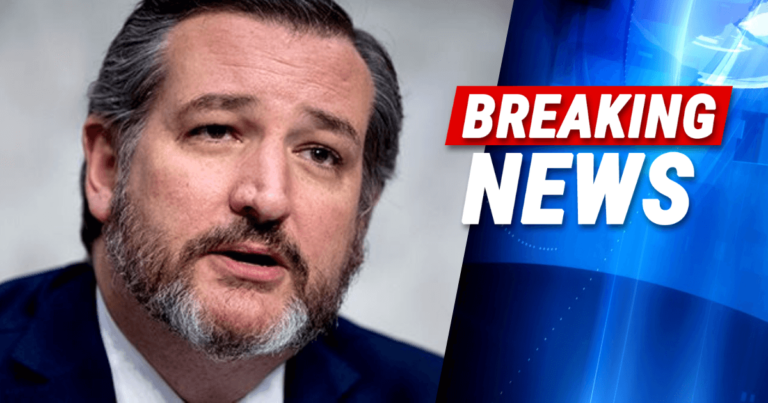
The fight for financial freedom for America’s hardworking service workers is a huge focus right now in Washington. Senator Ted Cruz (R-Texas) has stepped into the ring with a groundbreaking proposal that could change the game for millions.
But what exactly is this bold new move? Stick around, because this one’s worth the wait.
The Proposal
So, what’s Senator Cruz cooking up? Cruz’s bill seeks to amend the Internal Revenue Code in a way that could massively benefit those who rely on tips. We’re talking about waitstaff, bartenders, hairdressers—the backbone of our service industry. Cruz argues that these workers deserve to keep more of their hard-earned money without Uncle Sam taking a cut.
“American workers in dozens of industries depend on tipped wages to support themselves,” Cruz said. Other GOP senators agreed, including Senator Rick Scott (Fla.), Steve Daines (Mont.) and Kevin Cramer (N.D.).
“We need to take action now to lower costs for hardworking Americans and get our economy back on track,” Scott said.
Trump’s Vision
Now, here’s where it gets even more interesting. This isn’t just a Cruz original. The concept of making tips tax-exempt was a key point in Donald Trump’s economic agenda. Just last week, Trump doubled down on his support for this idea at a rally, stating, “To those hotel workers and people who get tips, you are going to be very happy, because when I get to office we are going to not charge taxes on tips, people making tips. … We’re going to do that right away, first thing in office.” Trump’s endorsement adds serious weight to Cruz’s proposal, making it clear that this initiative has some heavy hitters behind it.
Impact on Service Workers
Imagine being able to keep every penny of your hard-earned tips! If passed, this legislation could significantly impact the financial well-being of service workers. Currently, tips are considered taxable income, which means a portion of every tip received goes straight to the IRS.
For many service workers, who often earn below-average wages and rely heavily on tips to make ends meet, this tax burden can be a huge hit.
By making tips tax-exempt, Cruz’s bill would effectively increase the take-home pay for millions of workers. This could lead to an improved quality of life for those who often live paycheck to paycheck and struggle to cover basic living expenses.
Broader Economic Implications
Let’s talk about the bigger picture. Beyond the immediate benefits to service workers, the proposed bill could have broader economic implications. With more disposable income, service workers might spend more, potentially boosting local economies. Increased consumer spending could help drive economic growth, benefiting businesses and communities across the country.
Of course, there are always the naysayers. Critics argue that making tips tax-exempt could complicate the tax code and lead to enforcement challenges. They suggest that the bill could create opportunities for tax evasion and make it harder to ensure that all income is properly reported.
Political Reactions
The introduction of this bill has sparked a range of reactions in Washington. Supporters are cheering Cruz for championing the cause of low-income workers and seeking to reduce their tax burden. They argue that the bill aligns perfectly with conservative principles of reducing taxes and promoting economic freedom.
However, some Democrats and tax policy experts have their doubts. They worry that the proposal could reduce federal revenue and disproportionately benefit certain workers over others. Critics also argue that the focus should be on raising the minimum wage and improving labor conditions rather than altering the tax code.
Personally, I think this will draw a massive amount of support from service workers who are tired of the government taking so much of their hard-earned cash. I mean, who isn’t? Hopefully Ted and Trump don’t stop here and look at purging other areas of over-taxing that we see across our paychecks. This is just the beginning…
Key Takeaways
Cruz’s Proposal: Senator Ted Cruz introduces a bill to make tips tax-exempt, amending the Internal Revenue Code.
Trump’s Influence: The idea was reiterated by Donald Trump last week, adding significant political weight.
Impact on Service Workers: If passed, the bill could significantly increase take-home pay for service industry workers.
Economic Implications: The bill could boost local economies by increasing disposable income and consumer spending.
Source: The Hill
